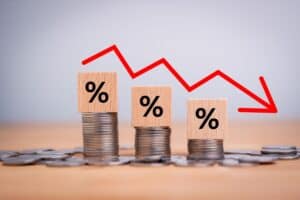An explainer for how SA’s fuel price is determined, expectations for the future and how higher fuel prices impact your investments.

South Africa’s fuel prices increased again for diesel inland, between 88c/l and 94c/l for diesel at the coast, while the price of petrol decreased by 12 cents a litre on 04 May 2022.
The latest fuel price announcement is based on the shortage of diesel supply due to lower exports from Russia as major exporter of distillate fuel.
This is despite an intervention by National Treasury to reduce the cost of fuel by cutting the general fuel levy (GFL) by more than R1 per litre. While this would have brought relief there is little government can do beyond cutting the GFL.
The South African fuel price is determined mainly by 1) International oil prices and 2) The rand-dollar exchange rate.
The rand’s recent strength against the dollar has prevented further price increases. Geopolitical tensions and looming oil sanctions against Russia have resulted in expectations of a decrease in the future supply of oil, and the price of Brent Crude Oil has increased as a result.
The correlation between Brent Crude and the South African fuel price can be seen in the graph below:
The rand Brent Crude futures price against the South African petrol price

How fuel prices are calculated
The fuel price in South Africa is comprised of four main elements:
- Basic fuel price: The basic fuel price makes up roughly 42% of the total price of fuel. The Basic Fuel Price is made up of the purchase price of fuel (in US dollars) as well as freight costs, insurance, storage, and financing. In South Africa the fuel price is adjusted on the first Wednesday of every month and is determined by two main factors: The rand/US dollar exchange rate (how fuel is purchased), and international petroleum prices (how much the fuel costs to purchase).
- Wholesale and retail margins as well as distribution and transport costs: The final contributors to the gross petrol price are those costs associated with transport and storage, custom and excise duties and retail margins for fuel station owners and makes up roughly 22% of the total fuel price.
- The GFL: The general fuel levy, which makes up roughly 23% of the total price of fuel. The GFL goes to National Treasury. Government is free to utilise this levy in a manner it deems fit.
- RAF levy: The road accident fund levy, makes up roughly 13% of the fuel price. These funds can only be utilised for road accident claims.
The impact of higher fuel prices on consumers
Higher fuel prices have a knock-on effect on South African consumers:
- Motor vehicle running costs: Vehicle owners will immediately feel the impact and will be paying more to fill up.
- Transport costs: An increase in fuel prices, means higher costs for companies to operate bus and taxi services. These costs are passed onto the consumer.
- Consumer goods: An increase in the fuel price impacts the cost of consumer products to an increase in logistic costs. An increase in logistic costs is typically passed onto the consumer, with a basket of goods costing the South African more money as a result.
The impact of higher fuel prices on your investments
Higher fuel prices result in higher inflation and may lead to increases in interest rates. Higher interest rates will have a negative impact on bonds and while cash rates will increase, they may not be sufficient to offset the impact of higher inflation.
Higher interest rates are negative for equities generally because of the way they are valued. But higher interest rates and higher inflation is particularly bad for consumer stocks for the reasons mentioned above. There are some notable exceptions in the equities space such as the banks which tend to do well in higher interest rate environments.
Higher oil prices will also benefit companies exposed to these prices directly, such as Sasol or even companies with exposure to fuel retail such as Kaap Agri.
Another option may be to invest in oil exchange-traded funds or exchange-traded notes.
There are international options available too with many exciting companies available to invest in in the energy supply chain. One company we particularly like currently is Schlumberger which provides technology and services to the energy industry for reservoir characterisation, drilling, production, and processing.
Looking towards replacement technologies is also an interesting option. Here we like Enphase Energy – a US-based energy technology company that develops and sells software-driven home energy solutions.
Equity exposure remains investors best bet against inflation on a relative basis; but as explained, this will vary greatly by sector and even at a stock level.
This article first appeared on Moneyweb and was republished with permission. Read the originals article here.






